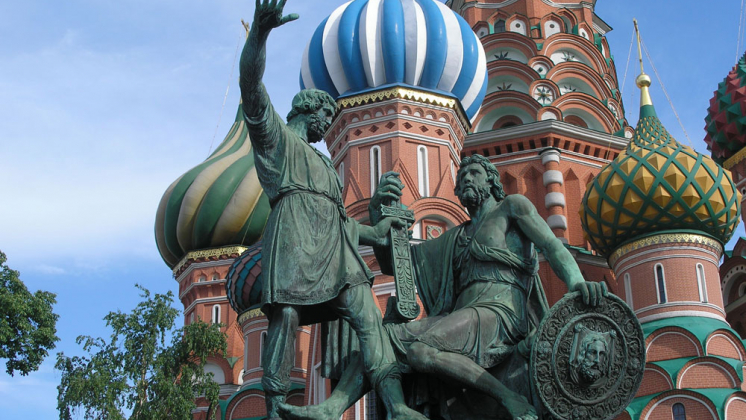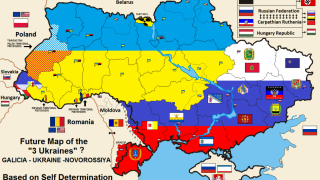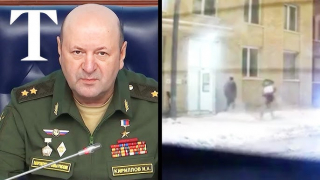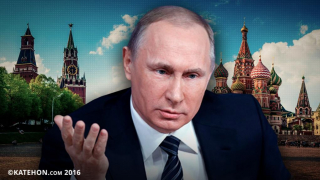Responsible Power: towards new frame of international relations
Power concepts in U.S.
Power is by its very nature material (the economic power of money or resources, the availability of physical means for compulsion, as well as men and material) as well as psychological (legal, religious, or scientific power, intellectual and social prestige, charisma, illusory or real reputation), and both variants are used for securing diplomatic or military strength1. By its very nature, which is neither good nor bad, power appears differently everywhere, and its appearance depends on the characteristics of the society in question. In different places in different eras power and rule had totally different forms of dissemination. The power of the Spanish king Philip the Second was based on aristocratic landowners, but a European force that was linked to urban bankers managed to overcome his military superiority. And in the US during the Vietnam War the pressure of a motley coalition forced the country’s government to conclude its military campaign. Many examples can also be gleaned from Russian history.
This is why any strategist the main problem is the definition of power, where and in what form it will be expressed, but also the identification of those places (in our case this is important) where the application of military force will be the most effective2.
Harvard University professor Joseph Nye and former US secretary of state Richard Armitage have formulated the fundamental principles of the different kinds of power. “Power is the ability to influence the behaviour of others to receive a desired result”3. In addition, Armitage and Nye note that power has historically depended on the size of a country and its population, natural resources, economic force, military strength, and social stability. The source of any kind of power depends primarily on the context. Hard power gives countries the possibility to use the stick and carrot-approach to get desired results. Soft power makes it possible to draw people to one’s own side without the use of force. Legitimacy is the fundamental basis of soft power. Smart power is neither hard nor soft, but is a combination of both.
Specialists in the area of network wars present allegoric interpretations of hard and soft power for having political influence. For them, hard power is expressed in different forms of compulsion, while soft power is a kind of beacon on the hill that draws in all those in its area of effect4.
In 2007, Armitage and Nye defined a formula for America’s future strategy: “smart power means the development of an integrated strategy, resource base, and instrumentation for the achievement of the US’ goals, which are envisaged as hard and soft power.”5 They also make a contrast with the earlier use of hard power in US foreign politics, as its activities were rectilinear and the foundations of its powers were visible to external actors.
The contemporary American political scientist Walter Russell Mead develops J. Nye's idea of hard and soft power in the context of US domination by interpreting both the military component as well as Gramsci’s conception of hegemony. He writes that hard power is separated into a military and economic component. The first can be called sharp force, as it is based on the power of bayonets and it is possible to feel its activities on one’s skin; were we to resist it, then sharp bayonets would push us in the necessary direction. This is the solid foundation of the American system. The economic component consists of a sticky power, which at the same time seduces and convinces. It is a “network of economic institutions and strategies; it draws others into our system and creates such conditions for them, that it becomes difficult to leave it.”6.
Soft power also has two aspects: the attractive force of American values, culture, and the politics towards different foreign communities, and a force which is concentrated in the determination of the headlines and the setting of the discussion frame (which is, according to Gramsci, the strength of the world hegemony).
“The attractive force consists of values, ideas, and political steps which are built into our system: this gratifies other countries. The force of hegemony creates something equally artificial and arbitrary, as much as, from a historical point of view, the American system of order itself from the Second World War onwards looks natural, desirable, inevitable and stable”7.
Walter Russell Mead points out, that the US’ sharp force is linked with the acknowledgement of the necessity of overwhelming military superiority as a strong base for national security. He compares the sticky force with the predatory plant named the sundew which draws in its prey with its pleasant smell, as its working doesn’t include military force, but does not have anything in common with the wants of the other party. An influential lobby of businessmen, bankers, and traders works on this force, drawing markets and producers into a dependence on America. In practice this takes shape in the creation of unequal trade conditions and confidence tricks; countries which are drawn into the American mercantile-financial orbit (the WTO, World Bank and the IMF are also included) are scared of a break with the USA, as they need the markets for sales and are also in possession of shares. “The destruction of the American economy (or American power) will deal colossal, unacceptable damage to the rest of the world” – says Mead8.
The attractive force does not, of course, work on everyone, as many countries do not acknowledge and often openly criticize American values and the country’s surrogate culture. But there are several elements to the force, including the US’ role in the world, immigration, and humanitarian aid, which Washington provides to many countries.
Finally, there is the fourth force: hegemony is built on the fact that the world order, which is supported by the USA, has been declared legitimate and inevitable9.
In addition, the sharp, sticky, and soft forces support the power of the hegemony. “These three different forces, acting in concert, lose their defining characteristics, flow into synergetic potential and form a whole that is more than the sum of its parts”10.
According to Mead, even military force is not only sharp, but also has a soft component, which is related to the network of US military bases, international cooperation (including via NATO), the training of specialists through the whole world and humanitarian programs.
Mead’s approach shows a wider spectre spectrum of possibilities than the dichotomy between humanitarian operations and the conducting of military operations.
Colin Gray’s monograph “Hard and Soft Power: The Utility of Military Force as an Instrument of Power in the 21st Century” is fairly indicative in the field of discussion in the US military community11. Gray proposes an examination of eleven theses for a deeper understanding of the political phenomena of hard and soft power; in addition, he adds the caveat that they have different focuses and that they can be characterised as correct, incorrect, correct but misguided, and incorrect but educational.
As a result, by seeing hard and soft power as full or partial alternatives to each other, Gray makes conclusions which give reason to say that even theoretical questions of both methods are still far from completion and that the debates will probably continue, although the terminology itself might change.
Critical approach
Nevertheless, in Russia as well as in other countries there exists a necessity to avoid the Western conceptions of power, in order to rid ourselves of cognitive dependence and the occupation of our consciousness.
For example, the current discussions about the necessity of the application of ‘soft power’ in the foreign policy of the Russian Federation are often limited to suggestions about the creation of a number of NGO’s, who are then supposed to engage in cultural work in other countries. In addition, people often forget that, for example, ‘soft power’ is directly related to military-political strategy. After all, the government has by and large two very serious instruments to make its influence felt: military force and diplomacy. In several states these functions are separated; in some cases they are united into a structure of inter-organisational cooperation, and a third variant suggests authoritarian decisions as deciding what to use where and in which cases.
In addition, a strange fancy for Western (to be more precise, American) conceptions has taken root in the Russian community of foreign politics and international relations experts. Initially a fashion of 'soft power' appeared, to which the next model of J. Nye’s ‘smart power’ was added. Several structures and organisations in Russia started to describe the advantages of these instruments which can be used for the interests of our country with gusto. But historical experience shows us that in some cases theories (they might even pretend to have a planetary character), having found fertile soil in one place, can be used for something else entirely. The failure of Marxism clearly showed that the focus on economic interests and the class struggle was inadequate for Russia, even though dialectical materialism was the basis for the Soviet Union’s political structure for decennia and some ideas harmonized with the expectations of the Russian people (for example, the clear eschatological ideas which are characteristic of Marxism, in the sense that the just society of communism was equated to the return towards a heavenly state).
What is more, a series of Russian organisations clearly appellate to the ideas of ‘soft power’ in the context of a wider imitation of American politics, which ranges from the copying of several institutes to the confirmation of the necessity to enter into the global club of the liberally oriented elite. By and large, they cover themselves with the grandeur of Russia and our history; with the help of tangible funds such structures implement the ideology of convergence and mondialism (the gradual rinsing of ideological differences and the creation of a future single national organisation).
As far as the adequate application of different ‘powers’ is concerned, we see the necessity to develop an exclusively unique approach with a focus on Russian history and tradition. It becomes clear, that the structural basis of ‘hard power’, ‘soft power’, and ‘smart power’, which has been developed in the US, is inadequate for our society because of the lack of liberal-democratic traditions which developed organically in the West.
A Russian approach will be effective when it confirms the clear hierarchy of decision-making in the interests of the country and state in harmony with divided responsibility, the goal of global social justice, a long-term strategy for any kind of activity (be it political, economic or cultural), and the impossibility of consensus on a series of questions of principle (for example, the blocking of ecumenical initiatives by the Russian Orthodox Church, which is an organic part of Russian power, or a full ban on gay-propaganda and single-sex marriage in the country). In addition, we consider the alignment of the structure of power to necessarily be linked to our geopolitical approach. Thus, land power must be the foundation of all possible emanations of power in Russia, through military force as well as through different diplomatic instruments, including the activities of different layers of society.
But in order for such an authentic model to appear, we must prepare both the corridors of power and public opinion. How can we do this, if we see the intensive influence of foreign influence in both cases? As has been said in the beginning of this essay, different groups which are furthering US interests continue to be active in the Russian Federation, including by way of discourse. They are mainly related to the sixth column in the Russian power structure12.
Internal agents of foreign influence
In recent years the Gorchakov Fund (created by decision by Dmitri Medvedev in 2010), which positions itself as an instrument of the Russian Foreign Ministry and which realises civil projects in Europe, has been an active promoter of the idea of ‘soft power’ in Russia. However, the Ministry of Foreign Affairs of the Russian Federation has a distant relation to the Fund. Foreign Minister Sergey Lavrov takes part in the Fund’s political council, but the Ministry of Foreign Affairs doesn’t directly influence its decisions. The Ministry’s recommendations are often ignored and the Fund follows its own policy, selecting its interests, themes, expert community etc. Former diplomats make up part of the Fund’s direction; they have, maybe not directly, but definitely through their positions, taken part in the destruction of the Soviet Union. One of them is former minister of foreign affairs Sergei Ivanov, who is a representative of the Russian International Affairs Council (RIAC): another pseudo-patriotic project linked to foreign politics. Rossotrudnichestvo, the ‘Russkiy Mir’ Foundation, and the Moscow State Institute for International Relations MGIMO are among the organisation’s partners. It is telling, that Pyotr Aven of Alfa Group was earlier marked as a board member but was later removed13. Where the resources for the realisation of projects are coming from is also unknown. The selectivity of projects support by the Foundation throughout its existence is also bewildering. One gets the impression that the Foundation’s activities are partially geared to engaging young patriotic cadres to let them ‘run dry’ in the future, and partially to support endless discussions about the role of Russia in world politics. By the way, the appearance of outspoken liberals in the Gorchakov Fund’s club of friends shows the organisation’s clearly destructive character14.
The RIAC is also far from the structure that could pretend to be a Russian analogue of American ‘soft power’, i.e. organisations that support national interests.
Next to questionable persons, if we are to evaluate those who direct the RIAC by the criterium of sovereignty, then we find that the discourse of the organisation is drenched in the spirit of Western thinking, even if Russian interests form the basis of the discussion. For example, in the report "Managing Differences on European Security in 2015" of the 25th of March 2015, which is dedicated to a number of meetings with European and American politicians from the Atlantic Council and the European Leadership Network, Russia is described as an authoritarian power. Even though this is said in the context of European opinion, considering the fact that the gap between Russia and liberal Europe is growing bigger, we can hardly expect to hear similar ‘self-criticisms’ from EU and US experts when they write reports about the Russian position on one question or the other15.
Rossotrudnichestvo and the Russkiy Mir Foundation could have evoked special sadness and sympathy, were it not for the despair of thousands of fellow Russians counting on these organizations’ help. The ‘effectivity’ of these organisations’ activities can, for example, be seen in today’s Ukraine, which had large sums of money invested in it for humanitarian cooperation, as well as in the contradictory opinions of different Russian organisations in different countries. Frequently, small groups of enthusiasts do more for Russia than councils with official status, which have gotten stuck in the corresponding matrixes in Moscow.
The Russian Foreign Ministry, too, causes a measure of estrangement for Russians located in forced emigration, by, for example, barring entry to Russia for those without a visa for persons from the post-Soviet space which are not considered citizens in their country of residence (this partly refers to Russians in Latvia; this perverse practice was stopped in November 2016).
Developing of Responsible Power
If we were to suggest that there can be organisations in Russia that resemble the above mentioned Foundations and Agencies, but with a rational plan of action, adequate personnel, the necessary resources, and political will, then the picture would be completely different. But not only in Russia, in the post-Soviet space as well, and further abroad.
Funds would not be allocated to the organisation of brunches in honour of the next jubilee of a famous writer or other historical personality, nor to senseless trips to EU countries for ‘political tourism’.
In other countries, experienced teachers would help all those willing to study the Russian language and culture (especially in the context of current policy with an explanation of current events in the correct way). Initiatives of humanitarian and scientific cooperation would be installed in order to criticize and expose liberal ideology (in many states people are already coming to this conclusion, but if Russia were to organise this, the status of our country as a worldwide centre of ideas would significantly rise). Our compatriots abroad would be a linking bridge between Russia and other countries while at the same time defending our interests and assimilating useful knowledge form other countries.
Meanwhile, Russian taxpayers’ money is being used to pay sketchy personalities in EU countries, whose only merit is knowing the Russian language and who openly use their expert status for openly political goals, constantly misinforming their listeners about events in the Russian Federation. Humanitarians keep confusedly using the rudiments of the Soviet school of scientific atheism as well as the theses of liberal doctrine. Russians abroad keep preferring to be citizens of other countries, feeding their identity with some kind of cultural events a la Russe, which often have little in common with real Russian traditions.
Certainly, our new practice of foreign politics also requires a metaphysical conception of accountability in combination with a readiness to sacrifice for the people and state. Although this might seem naïve and romantic, it was exactly these kinds of impulses which allowed for the creation of powerful government projects throughout history. Accountability in front of a transcendent force, i.e. God, has always been a part of the Russian worldview, which expressed itself in constant worrying about the brothers in the faith (often with sad consequences for Russia itself; the First World War comes to mind); and in a readiness to help far-off peoples (we can put forward as an example the activities of Nikolai Miklukho-Maklai, who laid the foundations for the anti-racist approach in cultural anthropology and ethnography).
In the current international situation, only through an honest drive towards a just order in combination with Russian inclusivity (as counterbalance to Western-centric exclusivity) can we survive all contrivances of the psychological war for hearts and minds, which is waged by the West through the whole world.
In addition, Russia’s actions must carry a power factor. Instead of the liberal doctrine of ‘Responsibility to Protect’, which is a cover for humanitarian interventions by the US and its satellites, there must be an ‘Answer of Russian Power’, which will help not only save thousands of lives throughout the world without question, but also present a lesson of how to effectively solve different crisis situations.
__________
1 Strategy, Dept. of Navy, Washington, D.C., 1997, p. 10
2 Ibid. p. 16
3 CSIS Commission on Smart Power : a smarter, more secure America / cochairs, Richard L.
Armitage, Joseph S. Nye, Jr. Washington, CSIS Press, 2007. p. 6.
4 Cf. Савин Л. В. Сетецентричная и сетевая война. Введение в концепцию. – М.: Евразийское движение, 2011.
5 CSIS Commission on Smart Power : a smarter, more secure America / cochairs, Richard L.
Armitage, Joseph S. Nye, Jr. Washington, CSIS Press, 2007. p. 7
6 Walter Russell Mead. Power, Terror, Peace, and War. America’s Grand Strategy in a World at Risk. – New York: Vintage Books, 2004. p. 25.
7 Ibid. pp. 25-26.
8 Walter Russell Mead. Power, Terror, Peace, and War. America’s Grand Strategy in a World at Risk. – New York: Vintage Books, 2004. p. 36.
9 Ibid. p. 41.
10 Ibid. p. С. 42.
11 Colin S. Gray, Hard Power and Soft Power: The Utility of Military Force as an Instrument of Policy in the 21st Century, SSI Monograph, 2011.
12In contrast to the fifth column, which is a vehicle for hostile interests in the open, the sixth column makes use of a façade of patriotism, but has strong ties with foreign actors and is ready do participate in the deconstruction of Russian statehood at any convenient moment. Aleksandr Dugin is the originator of the term.
13In autumn 2016 information appeared, that Alpha Bank has offshore funds, which corresponds fully to the liberal orientation of its owner.
14In one of the meetings of the Gorchakov Foundation’s club of friends, Mikhail Prokhorov, answering a young man’s question about his study and further career prospects according to his major (which had something to do with software), said that there were no job prospects for him in Russia and advised him to move abroad.













